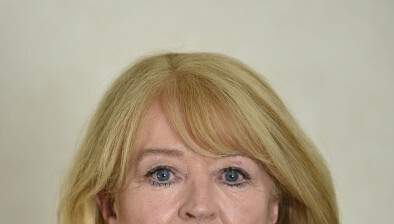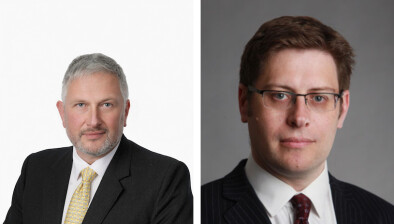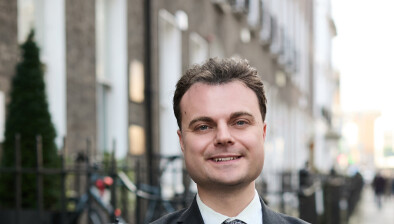High Court: Taxi driver did not have ‘absolute duty’ towards drunken man who landed under his car during a fight
A man who brought a claim for personal injuries against a taxi driver who drove over his foot has had his claim dismissed in the High Court.

About this case:
- Citation:[2019] IEHC 91
- Judgment:
- Court:High Court
- Judge:Mr Justice Michael Twomey
Concluding that it was clear from CCTV evidence that the man was the aggressor in a fight which resulted in him falling beside the back wheel of the taxi, and that the taxi driver could not have seen the man in his mirrors before moving forward, Mr Justice Michael Twomey said that drivers do not owe a special duty of care to persons engaging in unlawful conduct and that the man only had himself to blame.
The incident
The plaintiff, Mr Eddie Reilly, was out drinking in Mullingar on a Saturday night in March 2015, when at around 1am on the Sunday morning, he “was a willing participant in a fight which ended up in the middle of a busy main street”.
The court was given conflicting evidence as to the amount of time Mr Reilly had been drinking, but Mr Justice Twomey concluded that Mr Reilly had drunk at least 8 pints of beer, and said it was clear from CCTV footage that Mr Reilly was so drink at the time of the incident that he was unsteady on his feet.
During the fight, Mr Reilly fell or was knocked to the ground in the middle of the busy street, landing beside the back wheel of the taxi driven by the defendant, Mr Michael Mangan. Mr Mangan had momentarily stopped at a red light, and when he pulled away from the melee, the back wheel of his taxi rolled over Mr Reilly’s ankle.
Mr Reilly suffered a fractured ankle which required surgery.
Mr Justice Twomey said that it was clear from CCTV footage that Mr Reilly landed very close to the back wheel of Mr Mangan’s taxi. It was also clear that Mr Reilly was “outside the vision of Mr Mangan, since neither the rear-view mirror nor the side view mirrors would give sight of the road beside the back wheels of the car”. Furthermore, there was no suggestion that Mr Mangan reversed the car or that he moved off at a dangerous speed.
Claim for personal injuries
In the High Court, Mr Reilly brought a claim for personal injuries against Mr Mangan.
Mr Justice Twomey said that one of the unusual aspects of the case was that, after attending a Consultant Orthopaedic Surgeon in January 2019, the Consultant’s report stated that Mr Reilly had no functional deficit at home, continued to work as a scaffolder to the same level as his colleagues, continued to walk recreationally, had no evidence of osteoarthritis or degenerative changes, and had ongoing excellent range of motion.
Thereafter, Mr Reilly’s solicitor wrote to the Consultant to ‘suggest amendments’ – the effect of which, Mr Justice Twomey said, was to “completely reverse the meaning of the original medical report”.
Mr Justice Twomey also had serious reservations about Mr Reilly’s credibility – of particular concern was the inconsistency between the version of events he presented to Gardaí, and the version he presented at Court after he became aware of the fact that there was CCTV footage.
Initially, Mr Reilly had said he was talking to the taxi driver when he drove off and clipped him – however CCTV evidence confirmed that this was “a complete fabrication”. Mr Justice Twomey said that if it were not for the “excellent and painstaking detective work” of the Gardaí, Mr Mangan may have been prosecuted for a criminal offence, imprisoned, and lost his livelihood.
No “absolute duty” on the driver
Mr Justice Twomey said that the question for the Court was whether Mr Reilly, “who was engaged in behaviour which put his own safety and the safety of others at risk”, was to blame for his injuries, or whether any blame can be apportioned to Mr Mangan.
Mr Justice Twomey said it was clear that Mr Mangan had a duty to exercise reasonable care for the safety of members of the public when operating his taxi, however, considering McEleney v McCarron [1993] 2 IR 132, Mr Justice Twomey said it was clear there was “not an absolute duty on a driver such as Mr Mangan to avoid hitting someone who is lying on the road”.
Considering whether Mr Mangan exercised reasonable care when he hit Mr Reilly, Mr Justice Twomey said that it was reasonable for Mr Mangan to be “fearful for his own safety and for the safety of the female passenger he had picked up when a melee developed towards the back of his taxi”, and that it was “no surprise that he centrally locked the doors of his taxi for the safety of himself and his passenger”.
Accepting that Mr Mangan had checked his mirrors before moving away from the melee, and that he would not have seen Mr Reilly lying on the ground in those mirrors, Mr Justice Twomey said that even if Mr Mangan had turned around before taking off, Mr Reilly would have been out of his field of vision in any case.
Satisfied that it was reasonable for Mr Mangan to move forwards and away from the melee, Mr Justice Twomey opined that any reasonable person would seek to remove themselves from the melee as soon as possible. Furthermore, Mr Mangan’s duty was to concentrate on the road ahead, rather than on what was behind him.
Mr Justice Twomey concluded that Mr Mangan discharged his duty of care to Mr Reilly, “who clearly was reckless as to his own safety, by looking in the mirrors before driving himself and his passenger away from a very volatile and stressful situation”. He added, “[t]he fact that Mr Mangan ended up rolling over the ankle of Mr Reilly… [was] wholly the fault of Mr Reilly and/or the people with whom he was fighting”.
Stating that the real cause of the accident was Mr Reilly’s decision to drink to excess and then to engage in a fight in the middle of a busy main street in Mullingar, Mr Justice Twomey said that car owners do not “drivers owe some kind of enhanced or special duty of care to persons, such as Mr Reilly, who engage in unlawful conduct and are not only a danger to themselves but are also a danger to law abiding members of the public. When that danger ends up being visited upon themselves, they have only themselves to blame and cannot seek to shift the blame to, in this case, a taxi driver going about his business on a Saturday night earning a living and providing a public service”.
- by Seosamh Gráinséir for Irish Legal News








